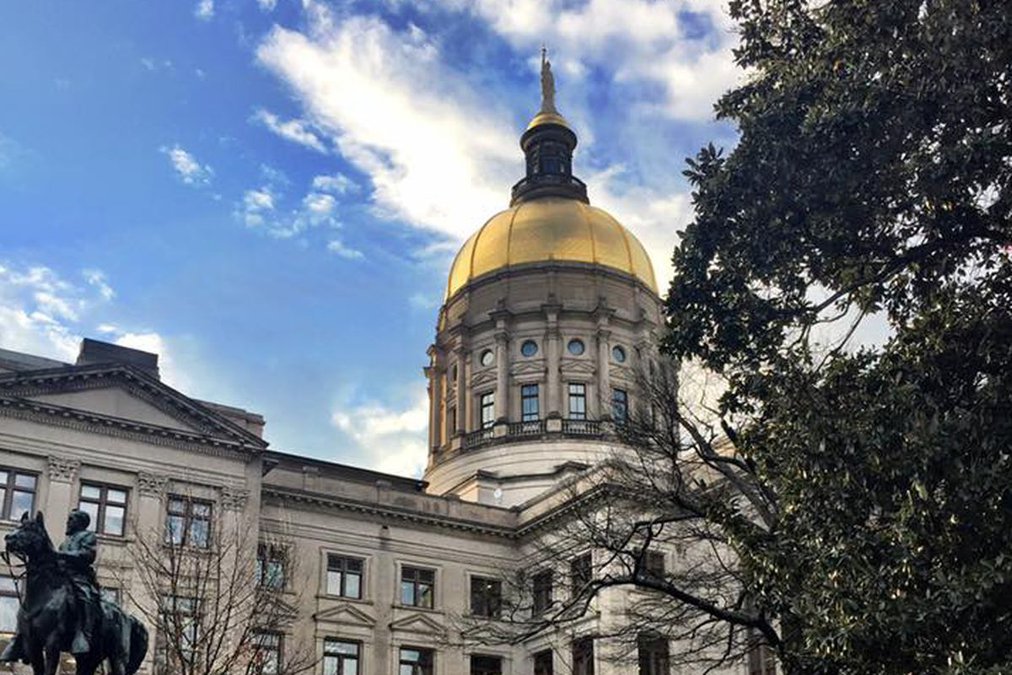ATLANTA – The economic impacts of coronavirus could put the state government $3 billion to $4 billion in the hole during the next fiscal year, an Atlanta-based public policy think tank warned Monday.
Closing such a huge budget shortfall without massive cuts to state agencies and vital services is going to require massive federal assistance, more aggressive than the economic stimulus package Congress passed late last month, said Danny Kanso, a policy analyst for the Georgia Budget and Policy Institute (GBPI).
“If the federal government does not come up with a serious response … it could really have very dangerous effects for the economy and the government of our state,” he said.
In an eight-page analysis released Monday, the GBPI predicted that a sustained unemployment rate of 10% to 20% in Georgia – a good possibility considering that 18% of the state’s workforce has filed unemployment claims in recent weeks – would send state income tax revenues for fiscal 2021, plummeting more than $3 billion below expectations. The new fiscal year starts July 1.
The report projects state sales tax collections to fall $300 million to $670 million, depending on how long businesses are closed to maintain social distancing.
Georgia is to receive about $3.5 billion of the $150 billion Congress earmarked for state and local governments from last month’s stimulus package.
But Kanso noted that money is going primarily to help offset the costs of the state’s response to COVID-19, not to address the looming budget shortfall.
Making up the shortfall by furloughing state workers and making deep cuts to critical state services including education, health care and public safety would only prolong and intensify the economic downturn, he said.
“We can’t cut our way out of this crisis or borrow our way out of this crisis,” Kanso said.
Instead, the GBPI report recommends addressing the shortfall by increasing revenues. A way to do that would be by increasing Georgia’s tobacco tax, currently one of the lowest in the country.
Kanso said raising the tax from 37 cents per pack of cigarettes to the national average of $1.81 would generate $575 million a year.
The report also suggests a deep dive into the generous tax incentives the state doles out every year to generate new jobs and keep businesses already in Georgia from leaving.
Even the state’s most popular – and costly – tax incentive, the film industry tax credit, could be reduced by raiding $2 billion in unused credits an audit turned up in March of last year.
The General Assembly already has passed and Gov. Brian Kemp has signed the fiscal 2020 mid-year budget, which covers state spending through June 30. The GBPI report projects the state will end the current fiscal year with a $1 billion shortfall.
Lawmakers will have to deal with the lion’s share of the projected shortfall when they reconvene the 2020 legislative session to take up the fiscal 2021 budget. The session was suspended indefinitely March 13 as the coronavirus outbreak took hold in Georgia.




